With a troubling economic backdrop, and a General Election on the horizon, major business and charity associations joined forces and spotting the common issues they were all facing drew up some solutions for the incoming politicians to pick up and run with.
Any analysis of the island’s economy does not show a great picture.
Since 2019 GDP has only grown by 1%.
Worse still, in 15 years productivity has only increased by 2%.
Broadly we are working harder and longer, while living standards are barely shifting.
With that as the backdrop, and a General Election on the horizon, around six months ago the major business and charity associations joined forces and spotting the common issues they were all facing drew up some solutions for the incoming politicians to pick up and run with.
Known as the G8, their message has been clear and encouraging, they are willing to work with the States and the public sector to solve the major challenges the island is facing.
Their Voice of Guernsey Business Report sets out the critical issues and a series of action points.
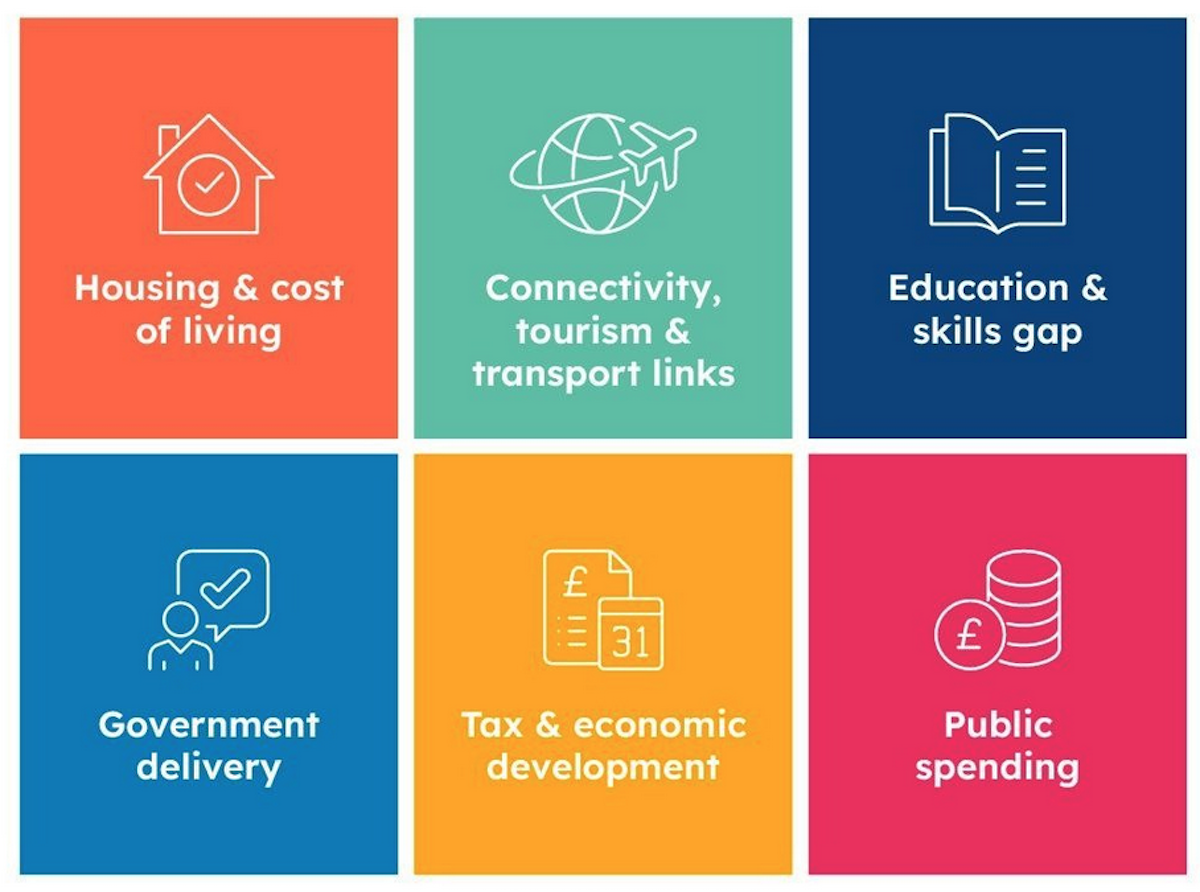
“It's a pivotal moment,” said IoD Guernsey chair Glen Tonks.
“We are at a crossroads, and we've got two doors. [If] We don't start addressing some of the challenges, we're potentially going to go down the door of heading towards crisis and survival mode. I think most would agree we don't want to go that door. But we have time. I think we can go through the door that heads towards a thriving economy, but we do need to rise up to the challenges and start taking action and prioritising the key areas.”
When they surveyed their collective memberships, a series of interconnected areas to focus on was consolidated: housing and the cost of living; connectivity, tourism and transport links; education and skills gap; government delivery; tax and economic development; public spending.
On top of that an unprompted message came out loud and clear about behaviors.
They want deputies to be respectful, to make decisions quickly and to avoid flipflopping.
The G8 is representing around 20 different industries, something like 1,000 organisations.
The six areas it argues should be prioritised during the next States have a timetable attached to them.
Candidates were asked to commit to that agenda.
A straw poll in the street will probably highlight housing as the top issue, and it is one that is interlinked with so many others.
It impacts day to day lives of individuals and the costs of living they face, it can prevent business from attracting and retaining staff.
Young people may leave because they cannot afford to stay, older people cannot downsize because they right properties aren’t available.
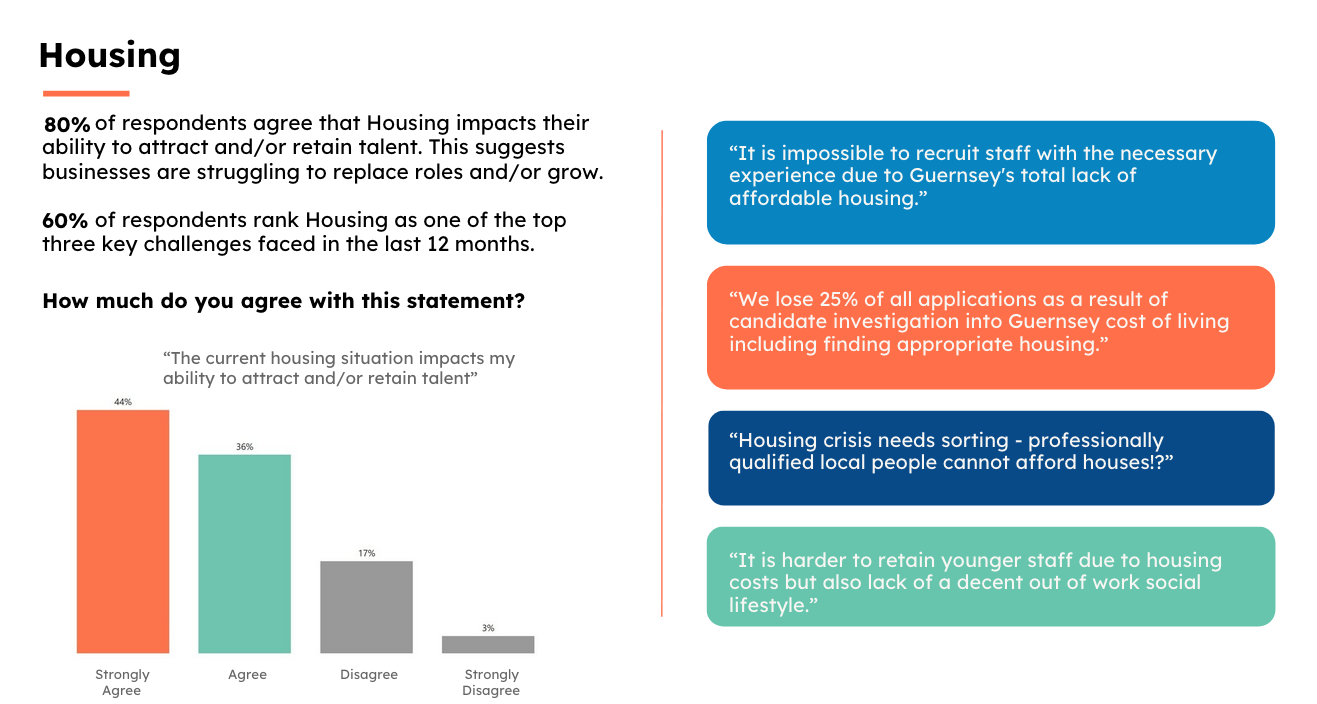
Chamber of Commerce Executive Director Alice Gill: “One of the key points that we've set out in our call to action is actually Guernsey has a really good Housing Development Plan that's good to go, that will address a lot of the issues.
“So what we really want to see is the incoming government pick that up, not mess around with it, not review it, not waste time, and to start implementing that in the new Housing Committee. And as the G8 we're really happy to get stuck in and help where we can. We have a housing forum already in place that is discussing the issues.”
They would like to see a housing champion appointed who has the focus and accountability to lead on this issue.
“Arguably what’s been one of the challenges here, is everyone's tried to set off and do good things and solve it, but quite siloed, which has actually meant we haven't really got traction,” said Mr Tonks.
There are already positive examples of the States and the construction industry working together to speed up development in the last few months, unblocking some of the planning issues.
Connectivity came out as another key action area, with two thirds of respondents to the G8 survey saying that it was impacting on their day to day operations.
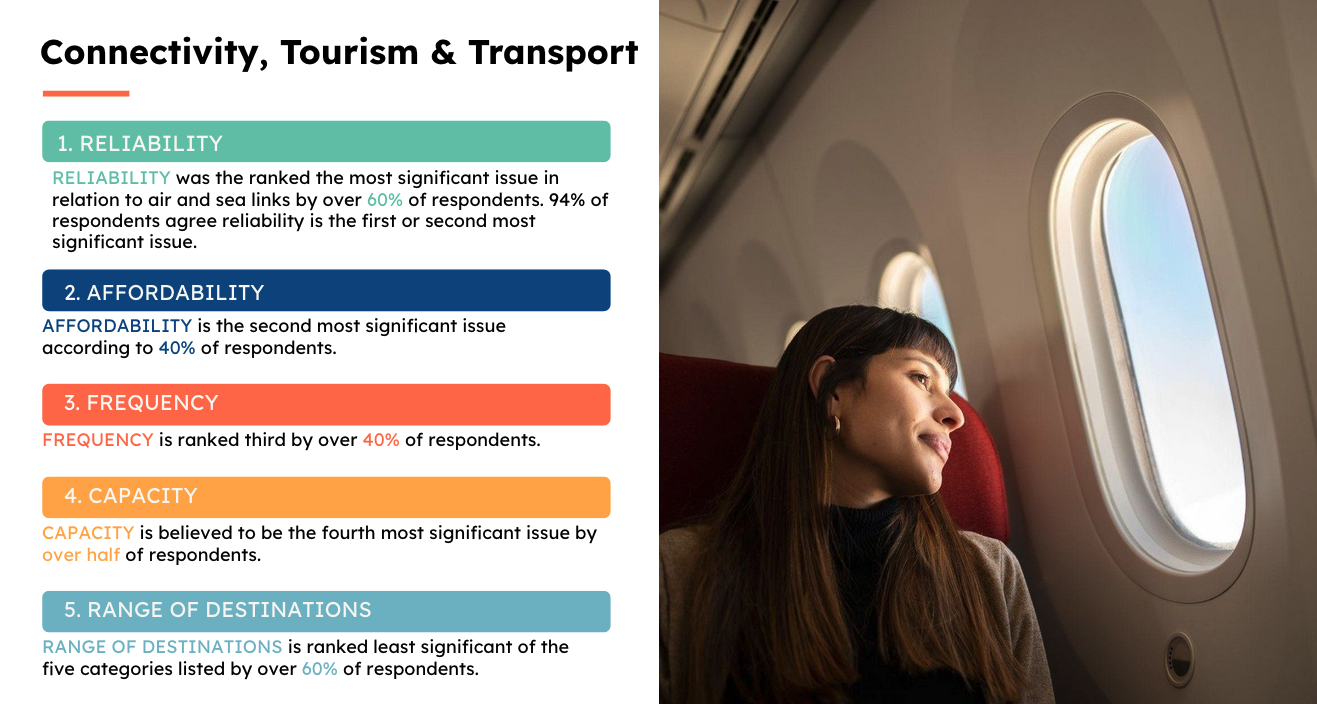
“It's something, not wanting to be too dramatic, that needs to be prioritised if we want to be a thriving economy,” said Mr Tonks.
“So the call to action is for the new States to prioritize reviewing the air policy strategy.”
That would mean bringing forward a piece of work that was due to be done later in the term.
The survey showed that the number one priority is reliability.
Ms Gill said: “We're talking about air connectivity, but where we're getting it right, we can show that it does make a massive difference. So the new ferry schedule, having the increased connectivity into France, if you're walking up and down the High Street… it’s full of French people. So we know we can make the difference that will tweak us in the right direction.”
About 90% of those answering the survey did not think that investment in education and skills was going into the right place.
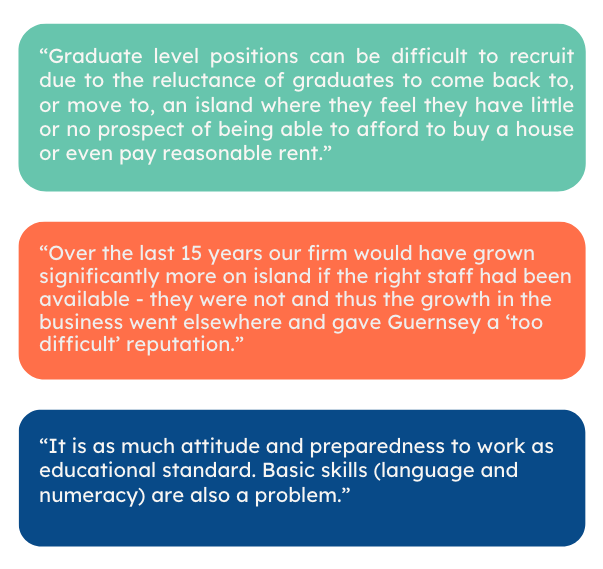
It reflects a belief that too much focus was on buildings and infrastructure, and not enough on the people that were teaching the island’s young people.
Ms Gill said there were two areas, with 2,500 vacancies at any one time indicating that there was a skills shortage that needs addressing now to fill those roles and help business grow, but also what skills are going to be to grow the economy in 10 years time.
The G8 has suggested a Skills Agency is established.
Mr Tonks added: “The call to action here really is around collaborating, state, public and private. What are the skills, what are the qualification levels that we need as an island going forward, because we are rapidly changing.
“If you went out on the street and said to people, what do you think are the skills we need? Everyone's going to have a different view. So the call to action is really to work together, to go ‘what skills, what jobs do we need in the future’, and then actually create a skills agency that collaborates with business and works with the public to actually build and design that.”
Two thirds of the candidates have agreed to support both a pledge around behavior and collaboration as well as the calls to action.
That type of engagement is seen as a positive sign for further cooperation during the new term of government.
Mr Tonks said that is naturally optimistic.
‘The focus here is the what, but the how is really, really important - how we're actually going to get it done. And it is that accountability, integrity, the collaboration and working together as a States. We should be flexible and agile enough as a small nation to work together, public and private. Ultimately, if we get that right, that is the secret sauce to success.”
Who is the G8?
Confederation of Guernsey Industry, Chamber of Commerce, Guernsey International Business Association, Hospitality Association, Construction Forum, Institute of Directors, Guernsey Retail Group and the Association of Guernsey Charities.

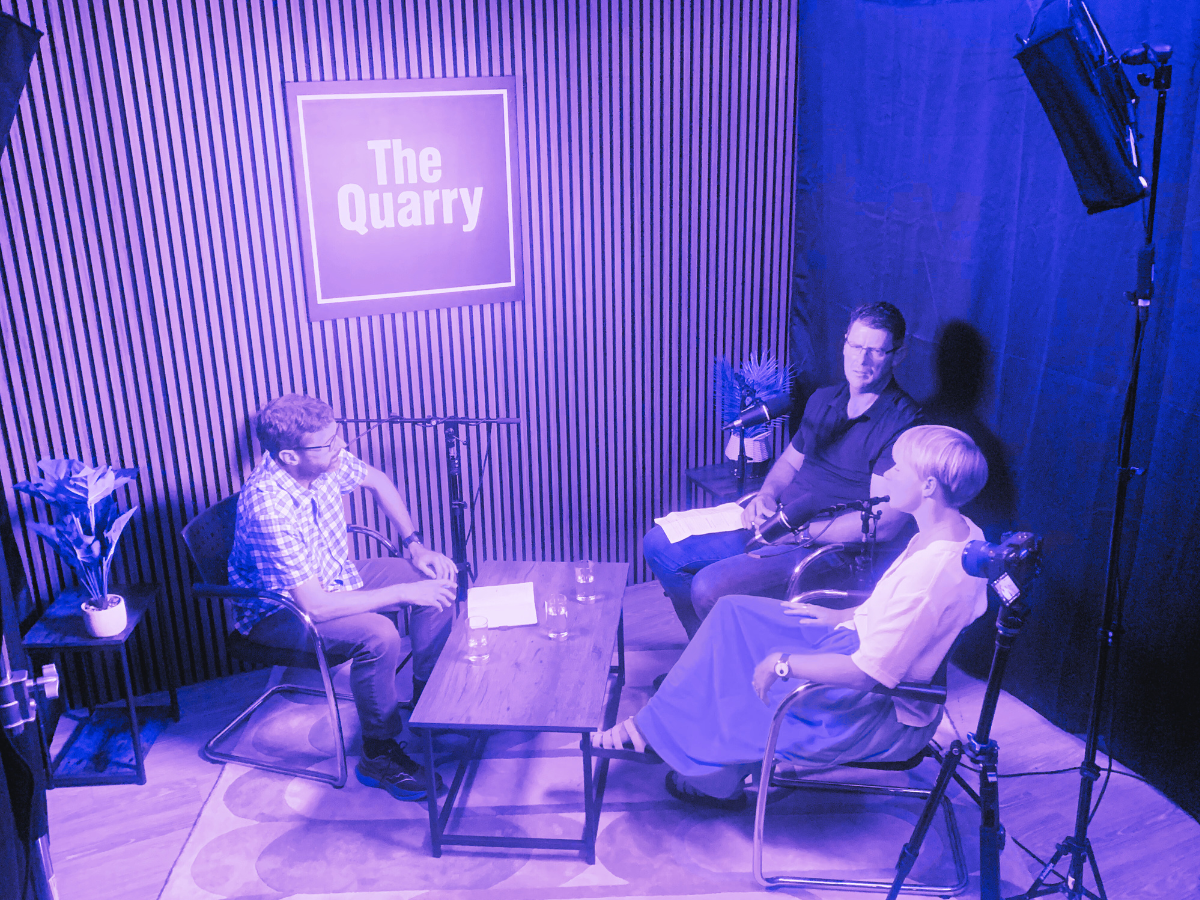
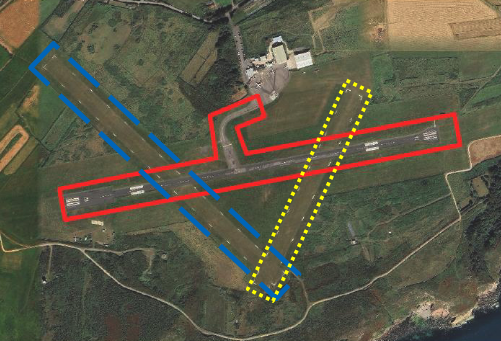
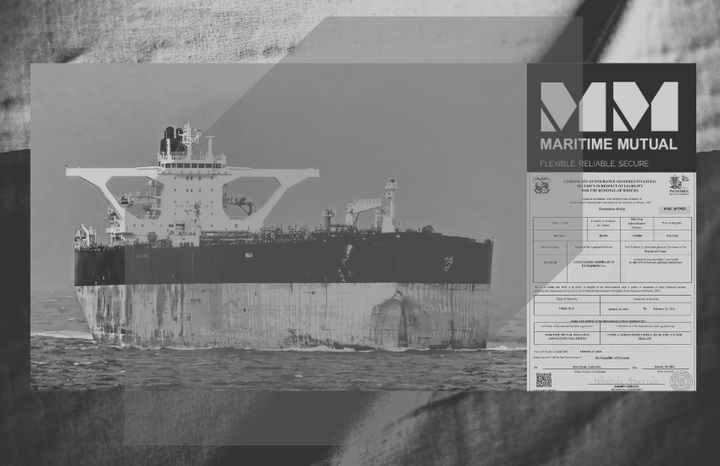

Comments ()